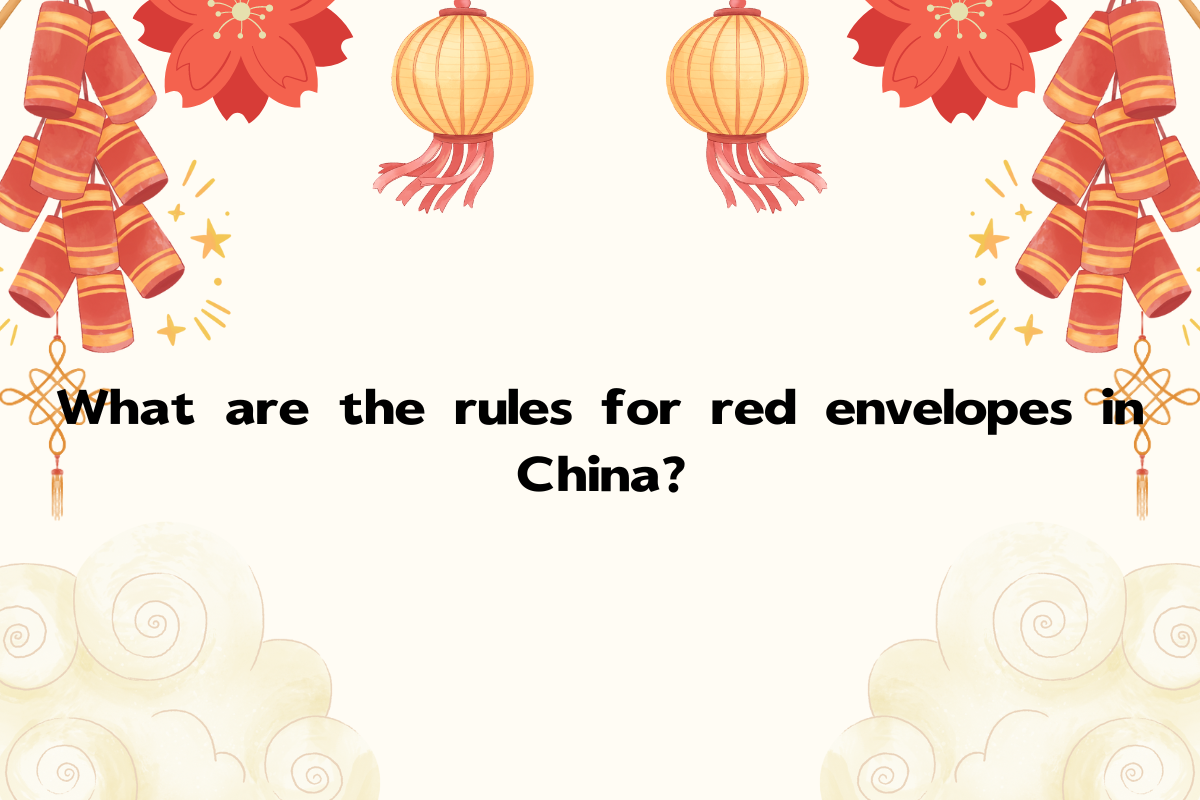What Are the Rules for Red Envelopes in China?
In the colorful tapestry of Chinese traditions, few customs hold as much significance and charm as the exchange of red envelopes, known as "hong bao." These small, crimson envelopes symbolize good luck, prosperity, and happiness, and are an integral part of various celebrations and social interactions, particularly during the Chinese New Year. However, there are intricate rules and customs associated with giving and receiving red envelopes 信封 (xìn fēng) that may not be immediately apparent to outsiders. Let's delve into the fascinating world of hongbao etiquette in China.

信封 (xìn fēng), noun, envelope
Examples:
- I put the letter in the envelope.
我把信放进了信封。
Wǒ bǎ xìn fàng jìn le xìnfēng. - She sealed the envelope before sending it.
她把信封封好了再寄出去。
Tā bǎ xìnfēng fēng hǎo le zài jì chūqù.
The Occasions
While red envelopes are most commonly associated with Lunar New Year celebrations, they are also exchanged during other important occasions such as weddings, birthdays, graduations, and other festive gatherings. The envelopes are typically filled with money, which symbolizes good wishes and blessings for the recipient.
Who Gives and Receives
Traditionally, married couples or older family members give red envelopes to unmarried individuals or younger relatives as a symbol of their blessings and good wishes. However, the dynamics can vary depending on the situation 情况 (qíng kuàng). For instance, bosses may give red envelopes to employees, and married couples may exchange envelopes with each other.
情况 (qíng kuàng), noun, situation
Examples:
- My teacher explained the situation to us.
我的老师向我们解释了情况。
Wǒ de lǎoshī xiàng wǒmen jiěshì le qíngkuàng. - The situation is getting better.
情况正在好转。
Qíngkuàng zhèngzài hǎozhuǎn.

Amount of Money
The amount of money placed inside the red envelope carries significance. Odd numbers are preferred, as they are considered lucky in Chinese culture. Common amounts include 100, 200, or 500 yuan, though the exact sum may vary based on factors such as the giver's financial situation and the occasion. It's essential to avoid giving amounts that end in the number four, as it sounds similar to the word for "death" in Chinese and is therefore considered unlucky.
Cultural Significance
Beyond their material value, red envelopes hold deep cultural significance in China. They represent the transfer of blessings, good fortune, and positive energy from one person to another. The act of giving and receiving red envelopes strengthens social bonds and fosters a sense of community and goodwill.
Key Sentences:
- Darling, here's a red envelope for you, wishing you a happy New Year!
宝贝,这是给你的红包,祝你新年快乐!
Bǎobèi, zhè shì gěi nǐ de hóngbāo, zhù nǐ xīnnián kuàilè! - Thank you, Mom!
谢谢妈妈!
Xièxiè māmā! - You're welcome, enjoy it!
不用客气,好好享受吧!
Bùyòng kèqì, hǎohāo xiǎngshòu ba!
Related Articles
- Why do so many people travel during Chinese New Year?
- Why do People Stay up all Night on Chinese New Year?
- Is it Bad Luck to Wash Your Hair on New Year's Eve?
- Can You Sweep the Floor During Chinese New Year?
- Why do People Visit Relatives During Chinese New Year?
- What are the 4 most Interesting Facts About Chinese New Year?
- What is the Evil Spirit in Chinese New Year?
- What Decorations are Used at Chinese New Year?
- Best Traditional Chinese New Year Activities (Part Three)
- Best Traditional Chinese New Year Activities (Part Two)
- Best Traditional Chinese New Year Activities (Part One)
- Chinese Red Packet Tradition: Traditional Blessings and Festivities
- The Dining Traditions and Symbolism of Chinese New Year that You must Know
- A Taste of Tradition: Comparing Northern and Southern Chinese New Year Feasts
- Lucky Food in Chinese New Year